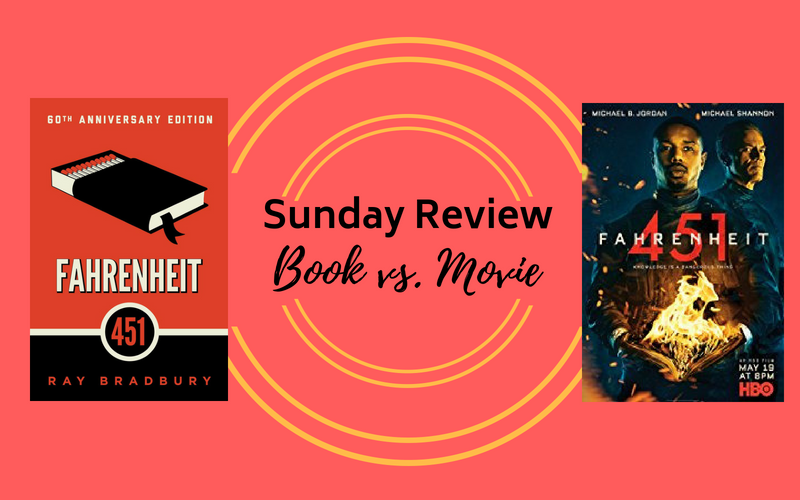Book Review:
Fahrenheit 451 introduces us to a future where happiness is only found through fake entertainment provided by the “walls”, full size TV screens in every home. Guy Montag is a fireman who’s job is to burn books because the authorities claim they only confuse and distress the people. When Guy meets a unique stranger, Clarisse, she opens his eyes to the actual world around him, including the value in slowing down to enjoy a real conversation or stopping to look at the stars. After Clarisse mysteriously disappears, Guy smuggles a book into his home and attempts to show his vapid wife how wrong their lives have become. His captain, Beatty, discovers his change of heart and forces Guy to burn his home and go on the run.
Ray Bradbury’s novel is a cautionary tale that feels all too relevant in our technology-obsessed society. In the quest for happiness, we’ve given up our ability to think for ourselves and place our entire lives in the hands of technology. Although scholars often recognize censorship as the main theme of this book, Ray Bradbury himself stated that he was more concerned that our love of television and the media would cause us to stop reading books. Substance no longer matters as long as we were entertained. Reading becomes a thing of the past.
I first read Fahrenheit 451 as required reading in high school or college, which is likely the case for most of us if we’ve read it. When I heard a movie was coming out, I took the opportunity to give it another go. I would highly recommend giving this one a second read if you’ve never read it as an adult. I connected with the story and it’s message in a much more impactful way. It is obviously an American classic for a reason, but doesn’t fall into the overly philosophical or wordy nature of other classics. It clocks in at less than 200 pages and features an easy to understand plot and approachable vocabulary.
Some of my favorite parts of the book are Guy’s interactions with Clarisse. He discovers the value of things that we’ve already started to take for granted in real life. Even the rain becomes a source of joy. Meanwhile, Guys’ wife refuses to leave her precious “walls” and “family”, despite the fact that nothing she’s watching is real. How often do we swallow whatever the news says without pausing to think for ourselves? Do we race through life or spend time on phones while sacrificing conversations with our actual friends and family?
The value in this novel is it’s ability to force ourselves to acknowledge these shortcomings.
Movie Review:
An absolute disappointment. I cannot understand why directors agree to adapt a book and then entirely change the story. I had such high hopes, especially after thoroughly enjoying rereading the story. The source material, particularly for Fahrenheit 451, is fantastic. It’s relevant, exciting, and thought-provoking. I can get on board with a few changes, such as updating the technology to emojis and virtual reality that we easily recognize. However, drastic changes to the plot are unacceptable. The movie focuses entirely on censorship and the act of book burning. While this is clearly a vital part of the book, it’s a tragedy to eliminate the effect of television/media on the population. The movie completely strips out Guy’s wife, who is the embodiment of this passive attitude. Instead, a contrived relationship between Guy and Clarisse replaces her.
Speaking of Clarisse, her defining characteristics of joy and wonder are gone. She is a much darker character and actually sinks low enough to work with the fireman for a reason that is never explained. I mourned for her innocence and influence on Guy in the book.
The final, and possibly most absurd, point that I’ll touch on is the Omnis. It’s not even worth trying to explain, because this solution to the book burning problem makes hardly any sense. Book lovers and independent thinkers place their hopes in a bird…Yes, a bird. A bird who’s DNA has apparently been modified to contain records of all the books. The final scene with Guy is laughable and speaks to the ridiculousness of the movie.
It’s a shame the plot is twisted because the acting is terrific. Michael B Jordan as Guy and Michael Shannon as Captain Beatty portray their characters with the depth and complexity I’d expect. Alas, this alone wasn’t enough to redeem the movie.
Summary:
My recommendation is to read Fahrenheit 451, the book and skip the movie. The novel weaves an extraordinary and valuable tale, but the movie butchers it into something unrecognizable.
